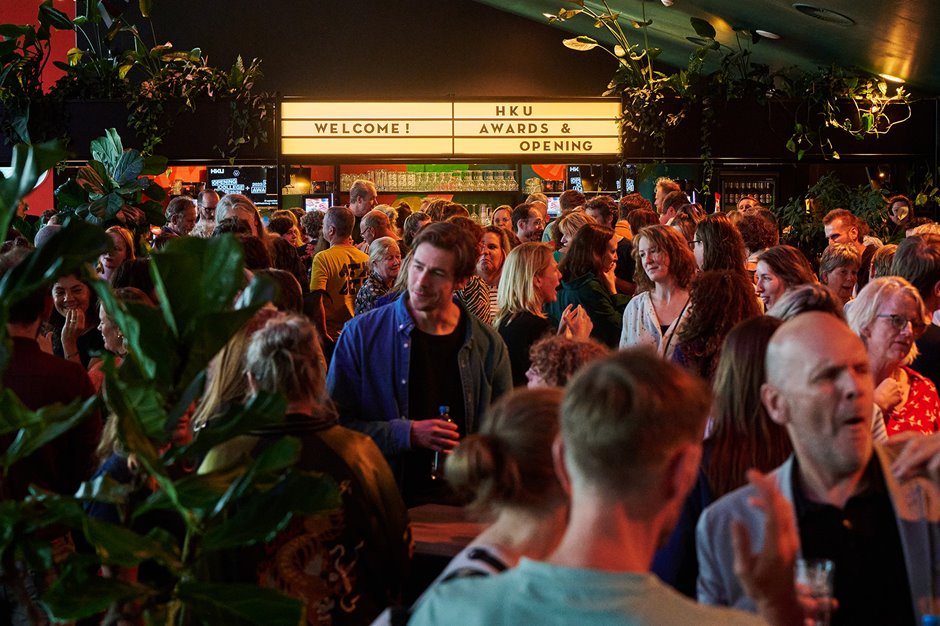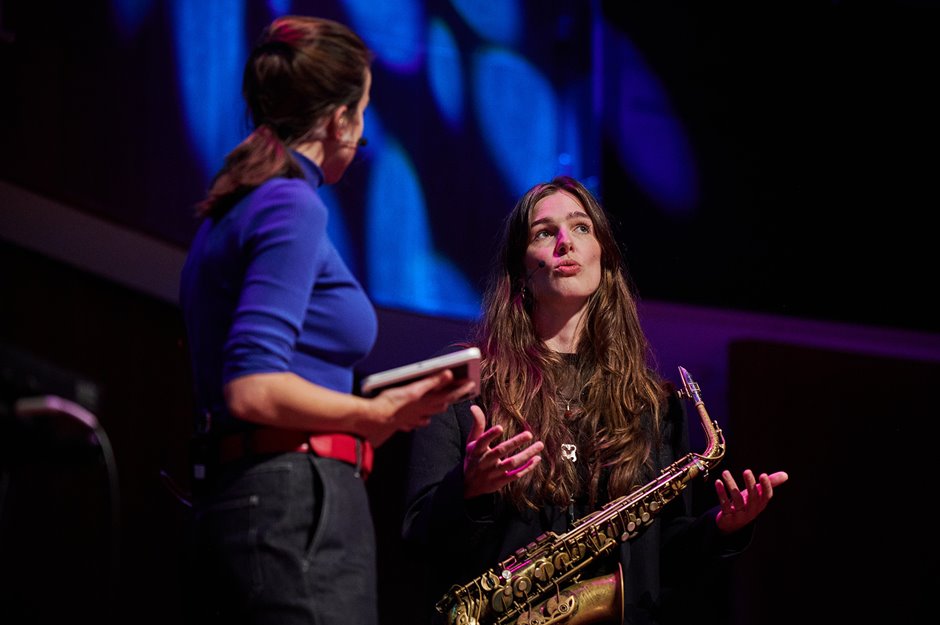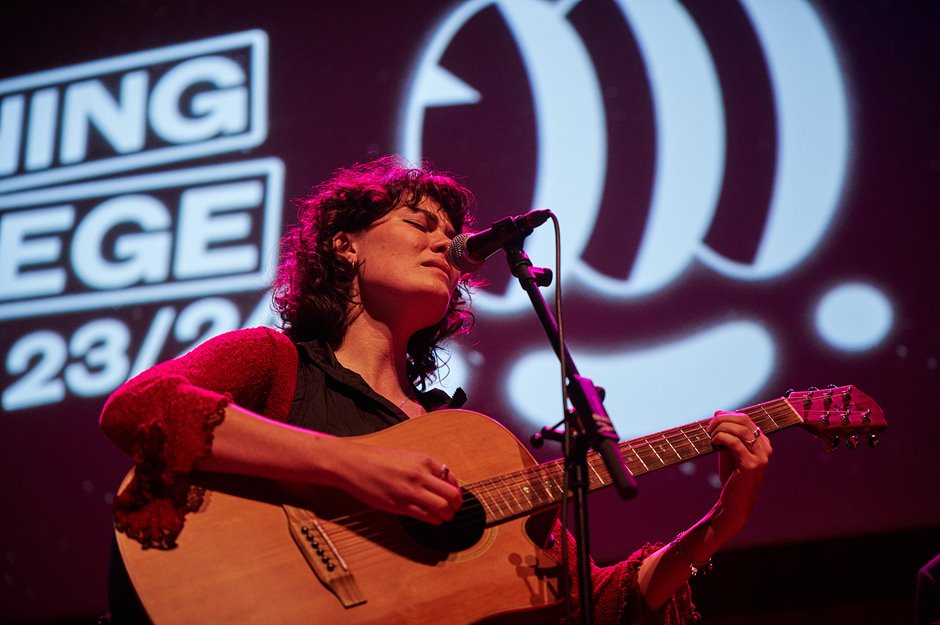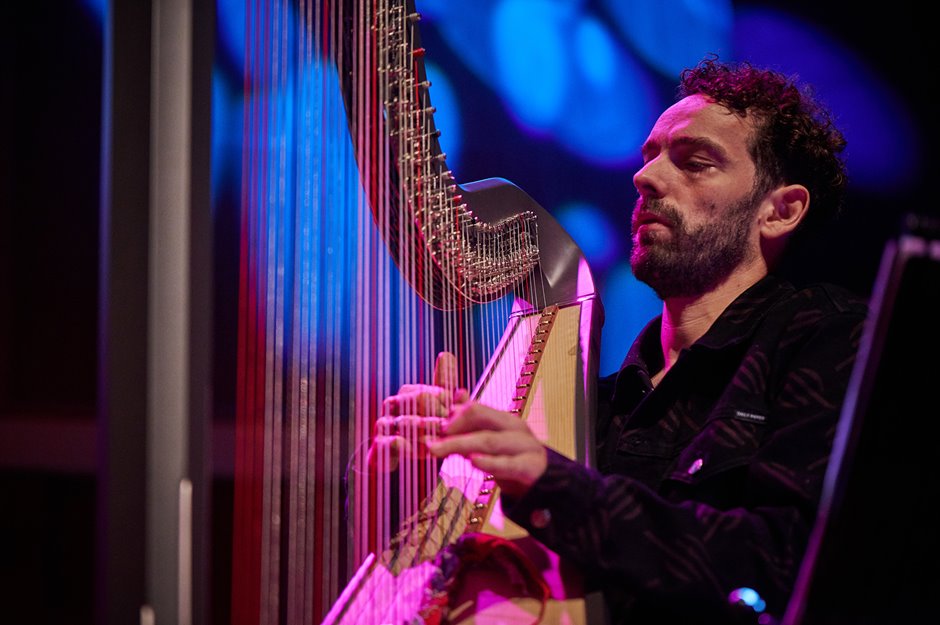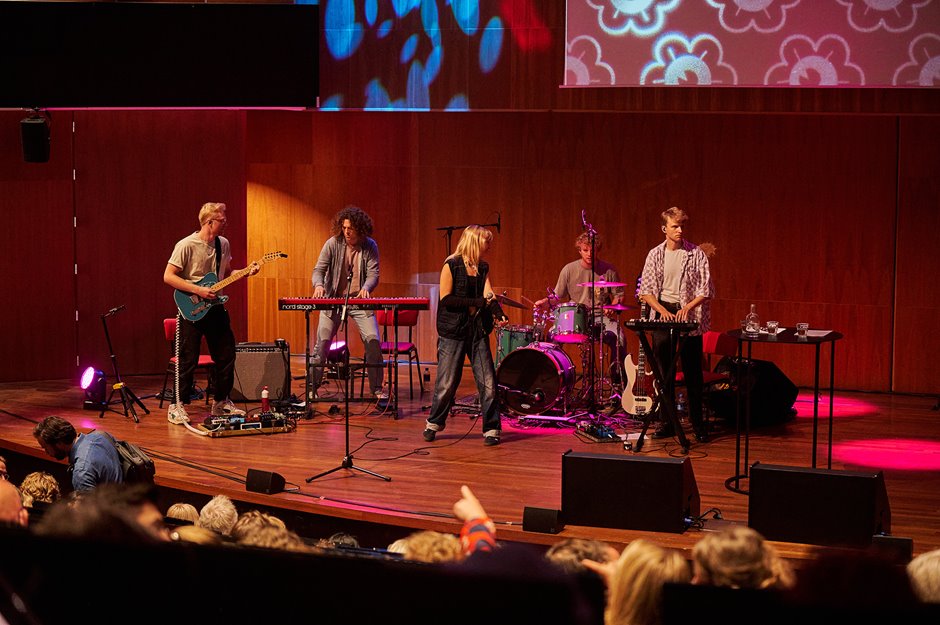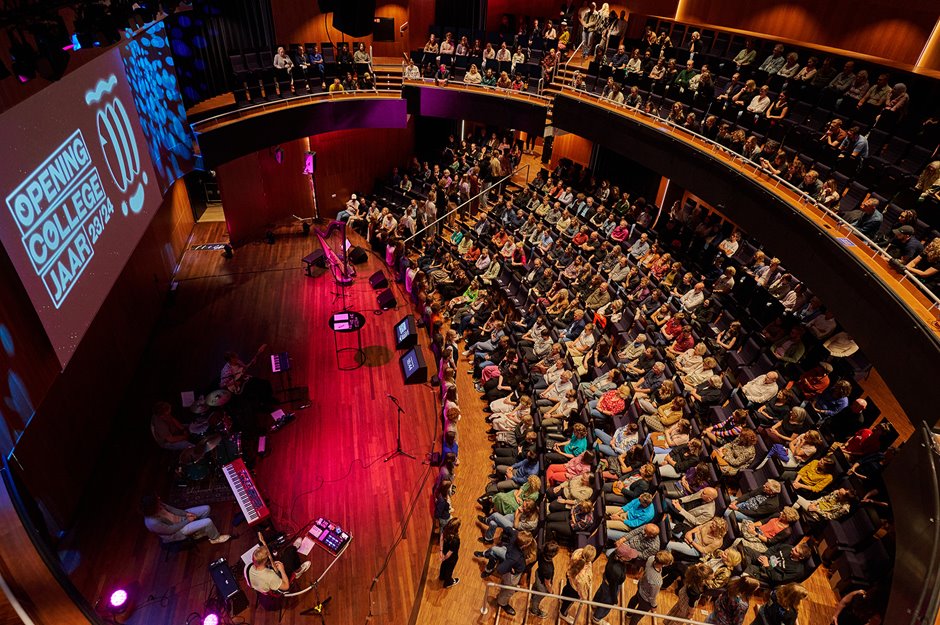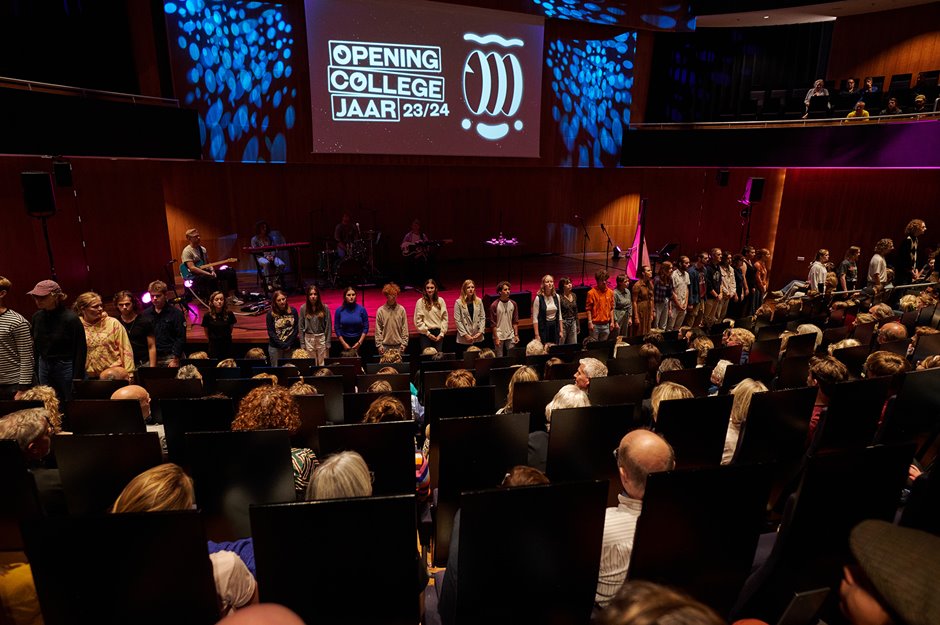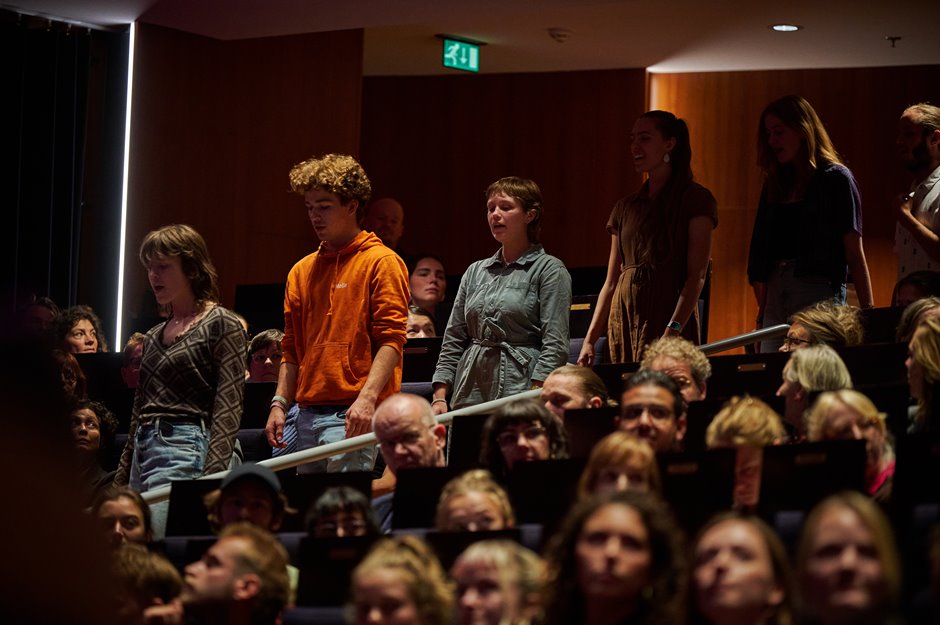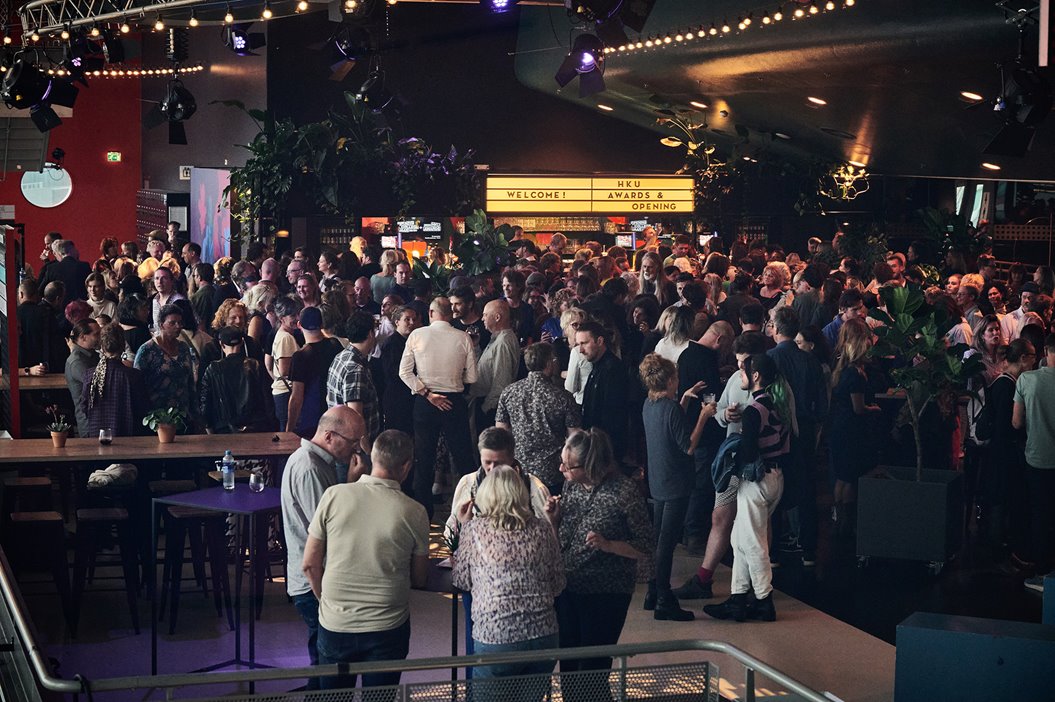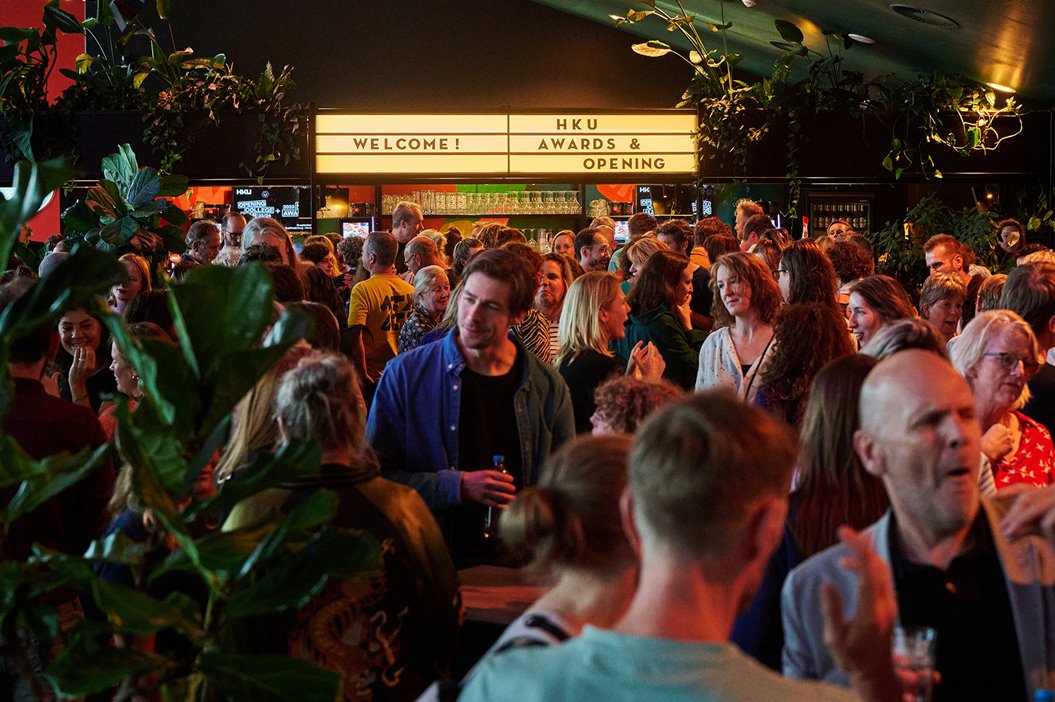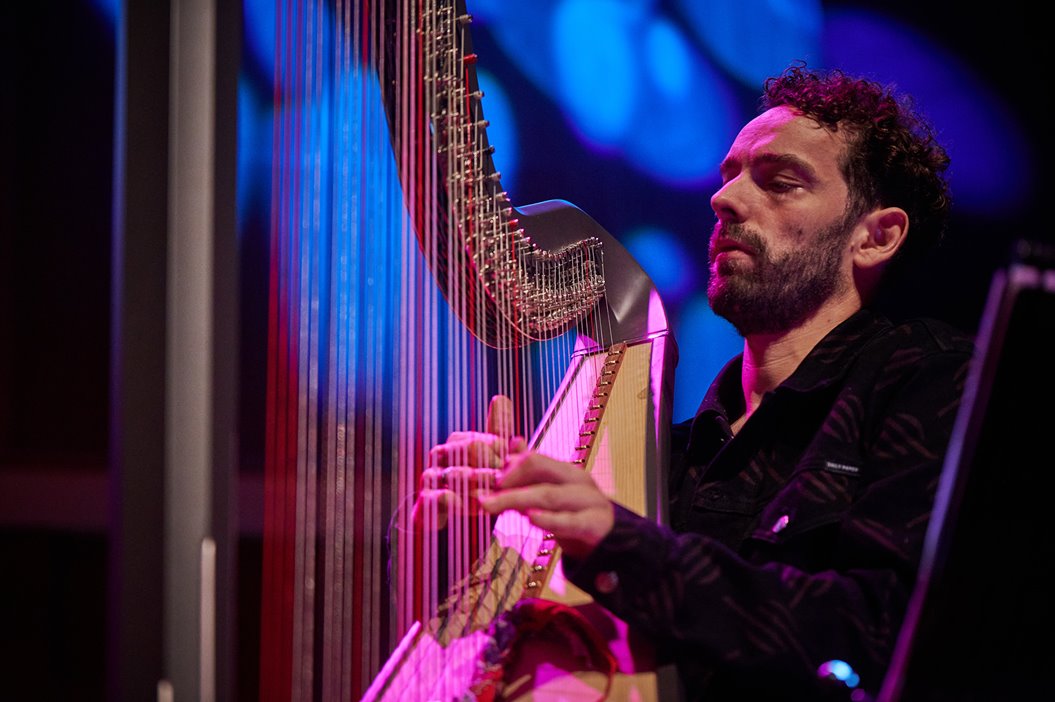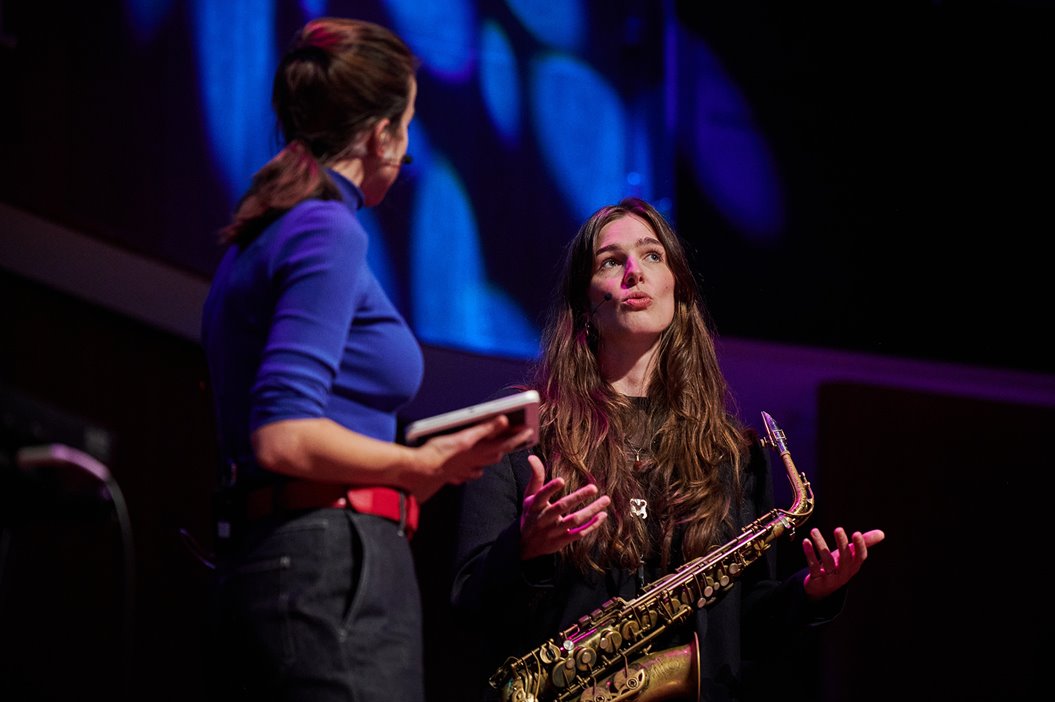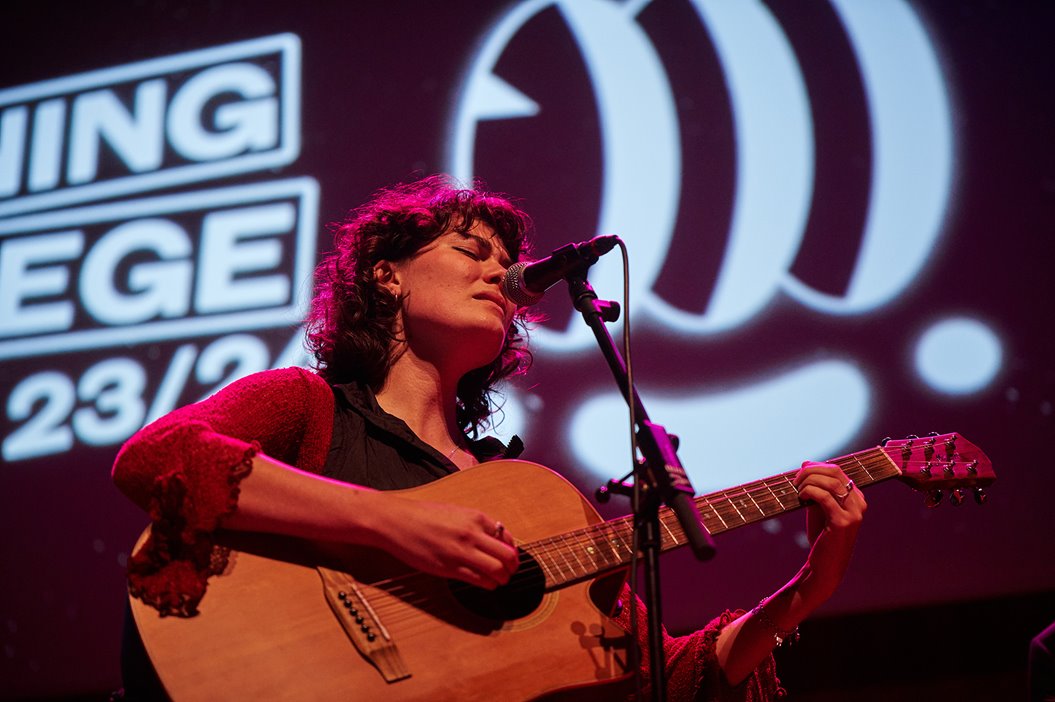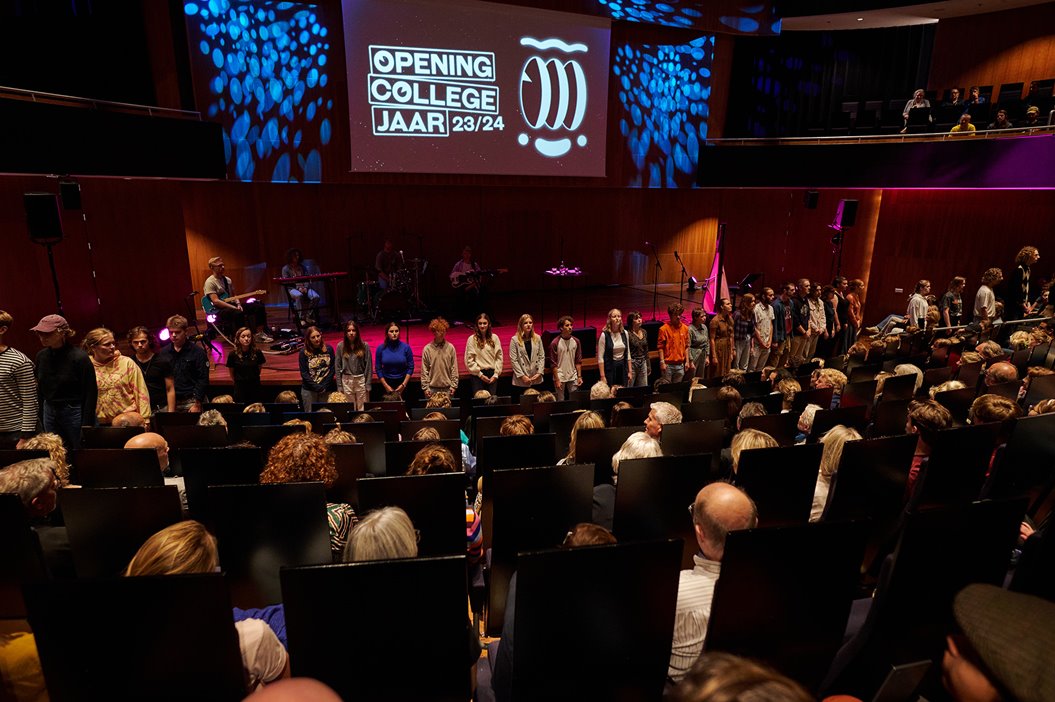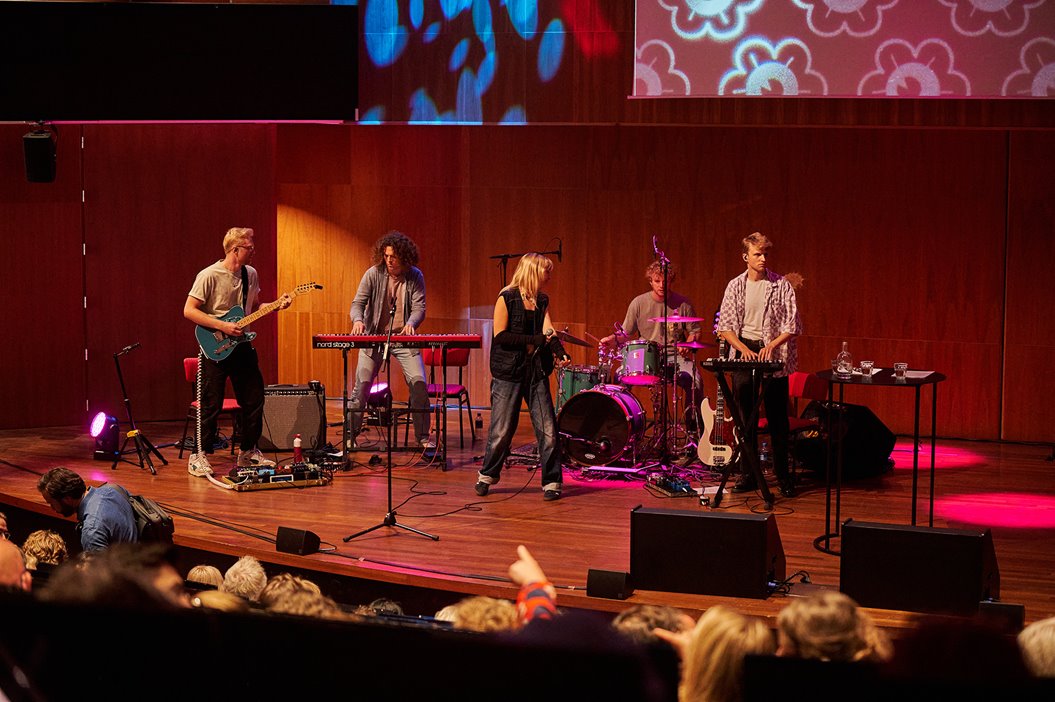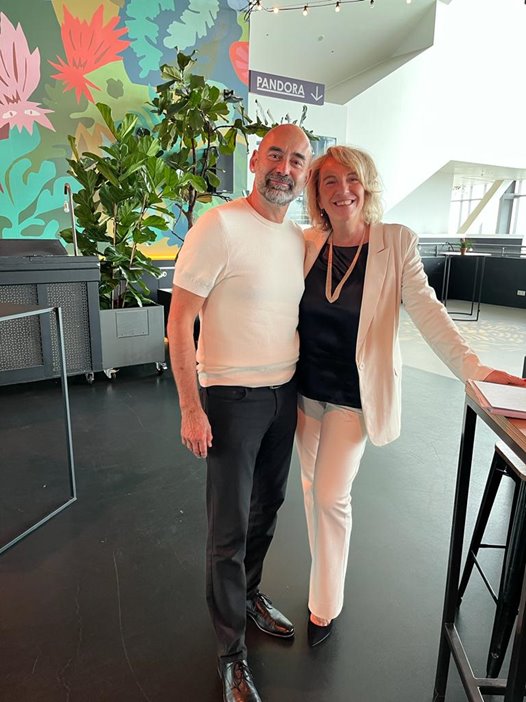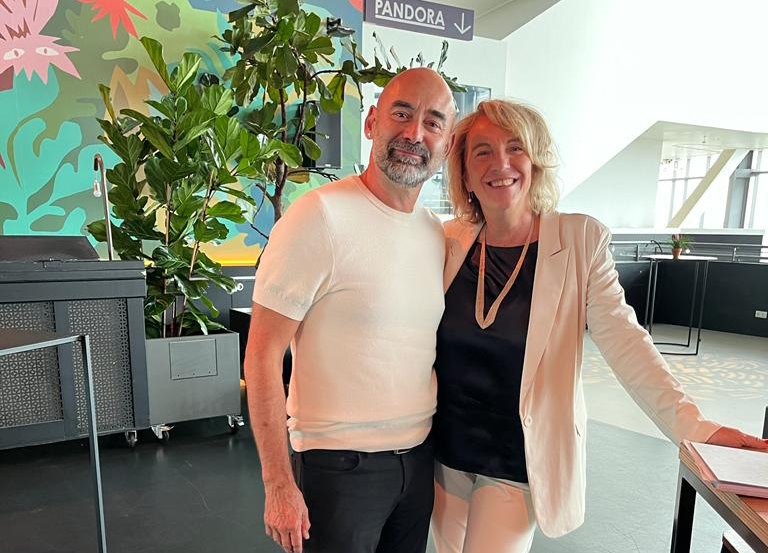Space can only be truly meaningful when it encompasses multiple perspectives. HKU is a community of many voices, and increasingly capable of exploring and utilising these diverse perspectives. In this diversity, HKU aspires to be consistent: whether it’s about the materials that are used, the scientific practise-based research projects, our modes of cooperation, or contributing to or even designing (societal) transitions.
‘Art needs no use, but it always has meaning'
With this closing statement, Heleen Jumelet, chair of HKU’s Board of Executives, concluded the question round during the opening ceremony of the academic year 23/24. The question round covered the future of HKU, and the importance of creating room for art, culture and education. The rest of the inspiring afternoon was filled with presentations, music performances and talks about the value of art and art education for the world of today.
‘Art needs no use, but it always has meaning'
Space can only be truly meaningful when it encompasses multiple perspectives. HKU is a community of many voices, and increasingly capable of exploring and utilising these diverse perspectives. In this diversity, HKU aspires to be consistent: whether it’s about the materials that are used, the scientific practise-based research projects, our modes of cooperation, or contributing to or even designing (societal) transitions.
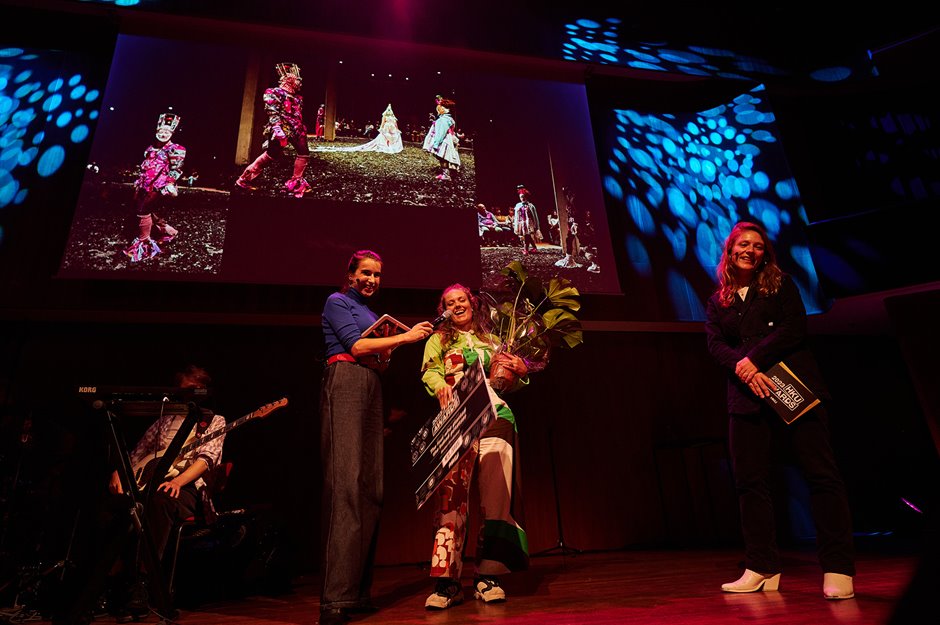
That which is good, true, and beautiful: a conversation with the Executive Board
Heleen Jumelet and Edwin Jacobs, members of the Executive Board, had a talk with host Eveline van Rijswijk about HKU’s plans and ambitions for the near future. Their personal ambitions were also addressed. For Heleen Jumelet, this was: ‘To bring the good, the true and the beautiful together, thereby making the world a little nicer.’ Edwin Jacobs explained his drive is to ‘make the right to education available to everyone. And to use my role as executive to contribute to a more inclusive and safer educational environment.’The realisation that all staff and students are creating HKU together, every day for over 35 years by now, was central to the conversation. The institution consists of over 4,000 students and almost 900 staff members, who commit themselves, day in, day out, to offering top quality education. Edwin Jacobs: ‘Together you create mass and strength. Be proud of your work, what you do, and who you are. And express this together, so that the whole world can see it.’ Heleen Jumelet also emphasised that the people are most important at HKU: ‘we educate people in an environment where you matter, as we are moving from a system-focused to a values-based organisation.’
HKU trains students to become able to add value with their new insights, and through the strength of their knowledge and skills; of their craftsmanship and capacities. In this respect, Heleen Jumelet mentioned Kim Putters: chair of the Dutch Social and Economic Council: ‘Kim Putters expressed his desire to involve the world of arts, culture and design thinking in the great transitions of our time.’ We are still an arts academy where art in large part serves its own purpose, but with a strong role for its practical application as well. We educate people with talents to enable them to support the great transitions of today.’
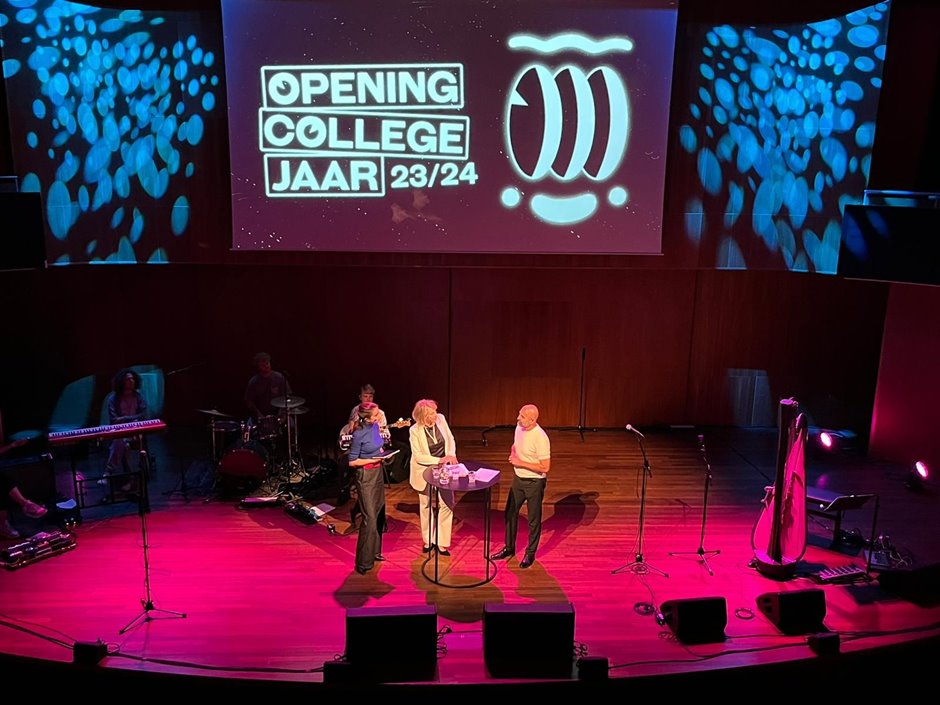
‘Keep doing the things you never did: alumni in discussion about impact
A table talk with alumni Mart Veldhuis, Bas van Abel (who is also a Supervisory Board member) and associate professor Veerle Spronck made clear what practical applications with impact look like: students whose excellence and craftsmanship lead them to realize ground-breaking concepts that make the world a better and more beautiful place. Veerle Spronck answered from her role as researcher the following basic question: What does it actually mean to create impact? On this, she had to say: ‘Transdisciplinary cooperation is essential, because you have to step outside your own personal expertise and look together with others to see how you can make progress towards actual impact.’Bas van Abel spoke from his own experience how he created impact as founder of the Fairphone and today as co-initiator of De Clique, that collects and recycles separated biological waste from companies. His advice for today’s students: ‘Keep doing the things you never did before.’ He also told about a guiding principle that he calls ‘strategic naivety’: ‘At HKU I learned that I can start something without knowing exactly what I’m doing, as long as I know what I want to achieve. An investigate attitude is essential to create impact, because you never have all the answers.’
Mart Veldhuis has recently garnered considerable fame and success with his tapestry Eigen Schuld (meaning both ‘Your own fault’, and ‘Your own debt’). This work fits the ancient tradition of using a tapestry to visualise social and political developments. His tapestry is not just a marvellous piece of artistry, but also makes people think, by offering a critical view on the life of a student who carries a student debt. Mart said that ‘HKU taught him a different way of thinking, namely that illustration can be about much more than simply “drawing pictures”. And of course, I also learned here how to draw very well.’
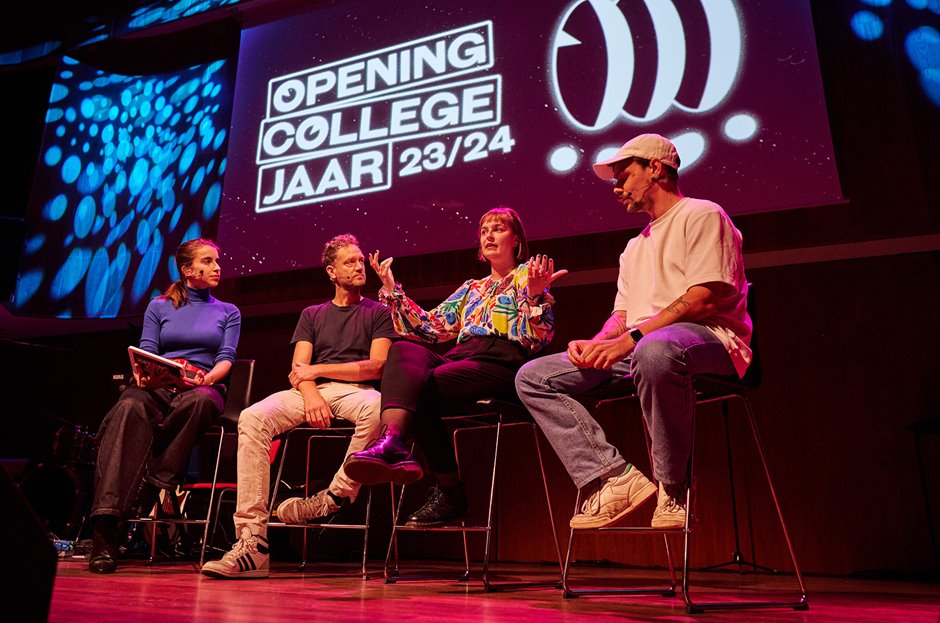
A sparkling fusion of sounds
The opening ceremony wasn’t all talk and no art; there were also musical stage performances by HKU alumni. Saxophonist Kika Sprangers started off with a duet with harpist and HKU Fellow Remy van Kesteren, later joined by vocalist Fenne Scholte. During the event, the sparkling musical language of the three talents merged into one for the very first time. Kika also looked back on her student years: ‘HKU gave me the courage to grow as an artist. Here I mastered the craft that forms the basis of everything I do today. But I also learned how I could foster my further development, and use all the facilities that they put at my disposal.’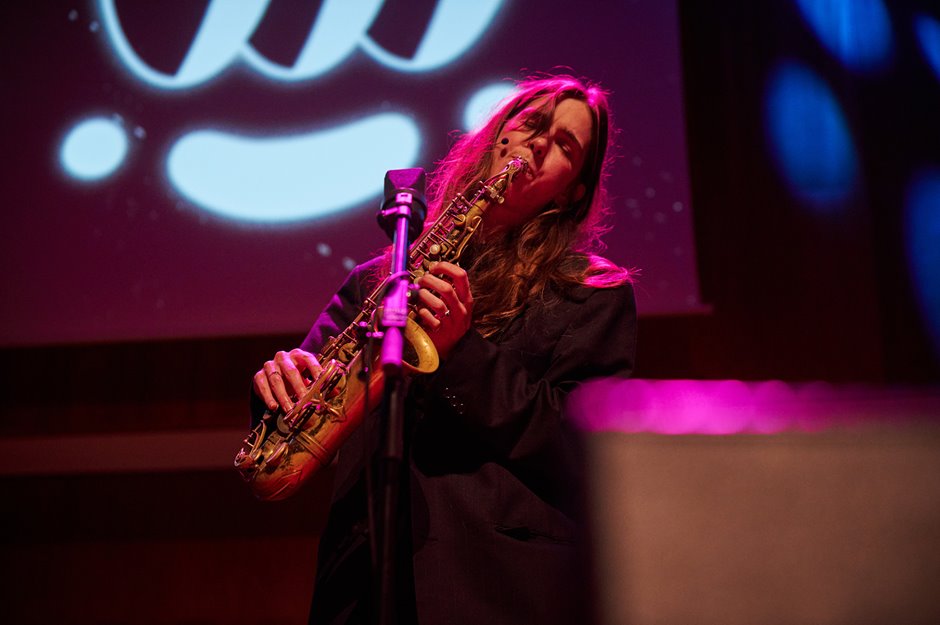
CONNECT
Prior to the event, the nominees of the HKU Awards presented their gradation works in the exhibition CONNECT in the lobby. CONNECT felt like a best-of-graduates Exposure; an overview of graduation works in all the arts disciplines that stood out through their artistic quality, innovative character, remarkable applications, or their social relevance. Yet CONNECT wasn’t just about seeing; above all it was an occasion to meet the creators and have a chat with students, alumni, staff members and professionals.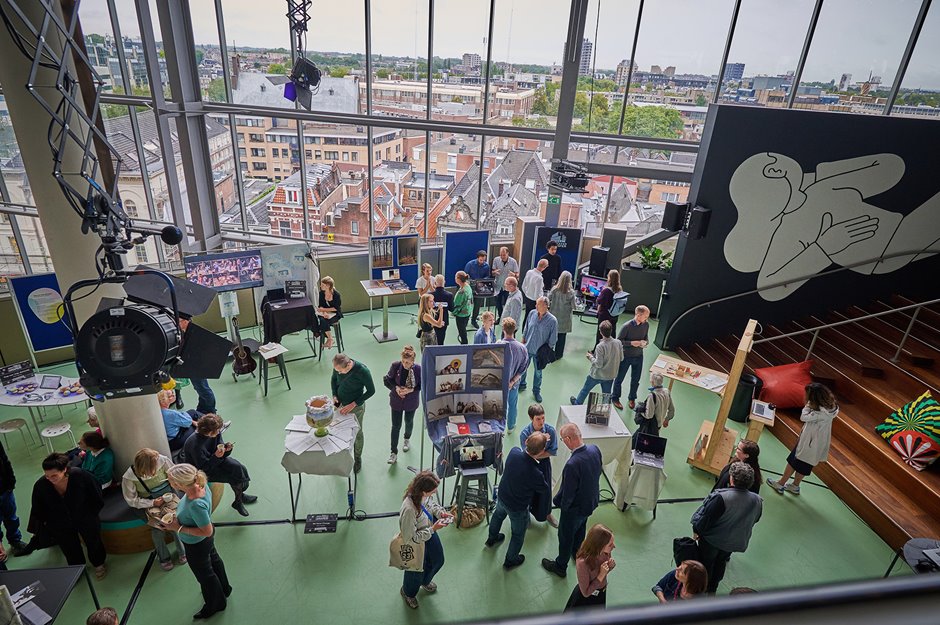
HKU Awards Ceremony 2023
For most, the highlight of the day was the HKU Awards 2023 ceremony, where the most remarkable graduation works of this cohort were honoured with an award. Chair of the jury Femke Rotteveel (director of Fotodok), handed over the awards to graduates Hannah Konings (Fine Art), Nonna Hoogland (Illustration) and Shahab Albonaser (Audiovisual Media). A citation from the jury report: ‘What an energy, what quality, and what an imagination! Despite - or is it because of? - the challenging road towards your graduation through the corona period, you managed to blow us jury members away with your works, dedication and authenticity.’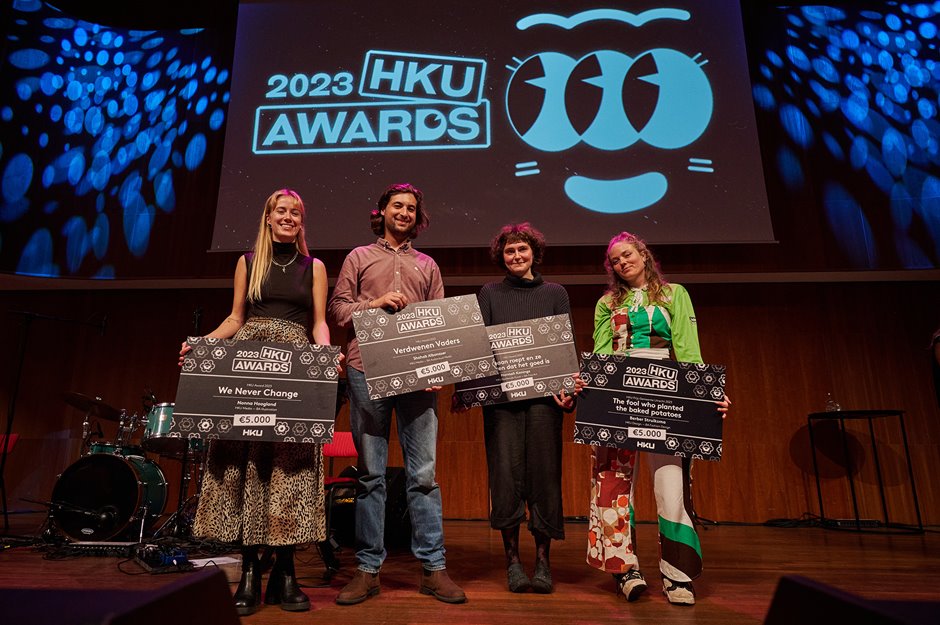
HKU Utrecht City Prize
Berber Struiksma (Fashion Design) received the HKU Utrecht City Prize, reserved for the graduation work with the most remarkable social impact, from Eva Oosters: city councillor for Culture. About the work, called The fool who planted the baked potatoes, Eva had this to say: 'This artist is committed to offer an alternative to all the conventions that dominate the fashion industry.’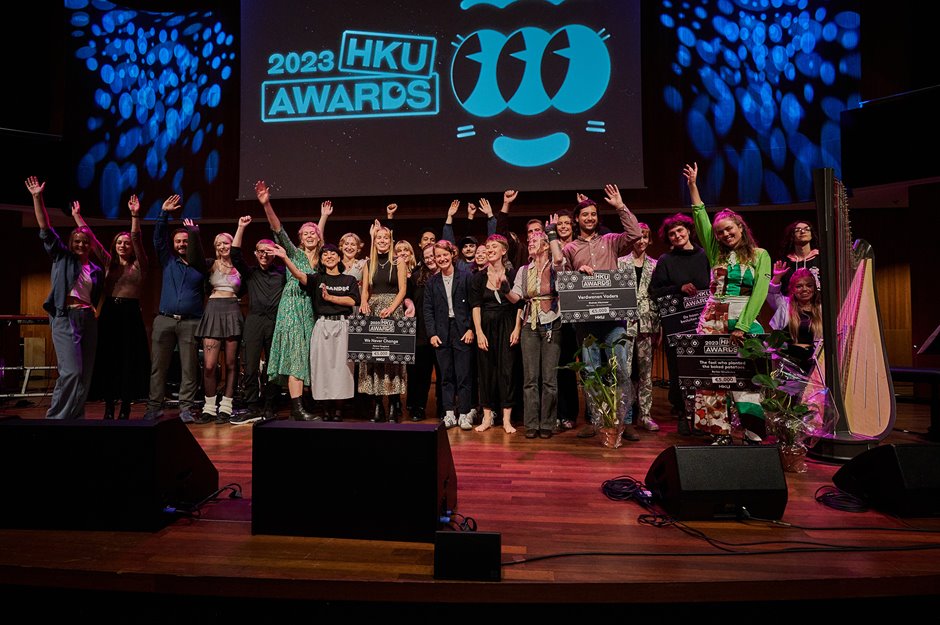
‘Give them the stage and the opportunities they deserve’
Chair of the jury Femke Rotteveel also reflected upon how valuable these graduates are for society: ‘You are the hope that perhaps the world will turn out all right after all. I see your artistic qualities as the key towards the change that we need. Let nobody ever tell you that your skills and talents are meaningless. Never. My most urgent call to the people in the audience is: make use of these talents. Offer them a stage and the opportunities they deserve. How you can do this? Let no commission, meeting or brainstorm ever take place without the presence of an artist.’Allow yourself to be inspired by the works of all the nominees on this page.
Photo's
